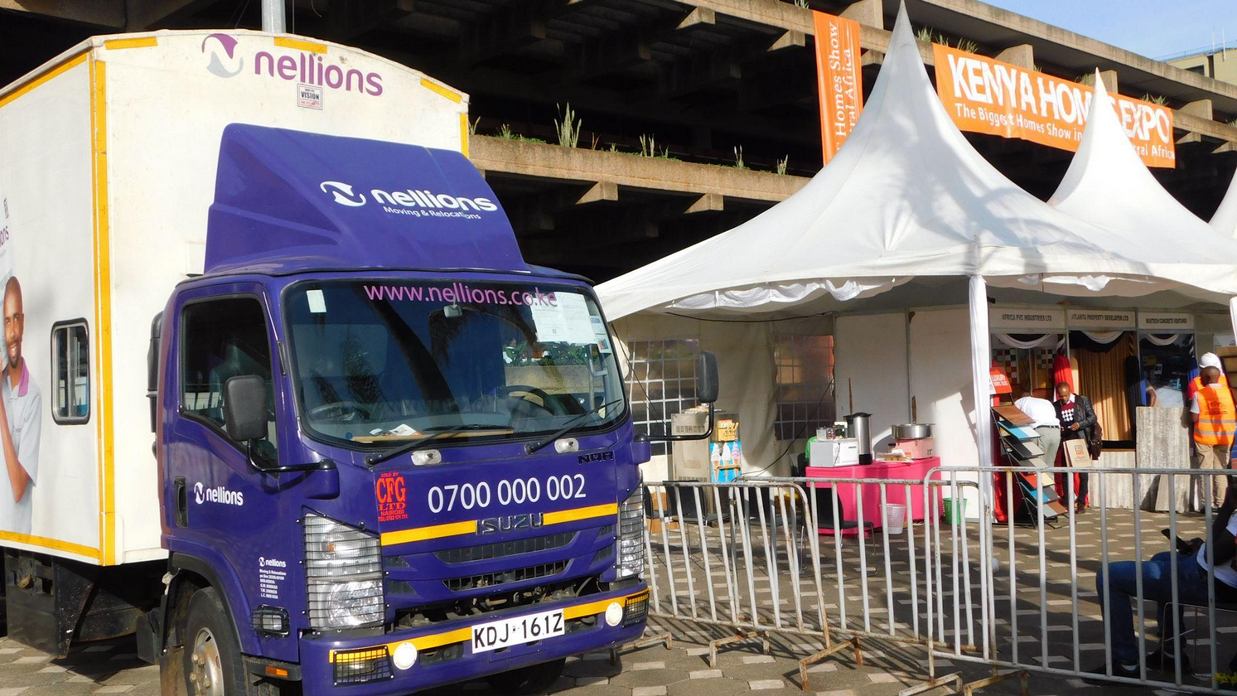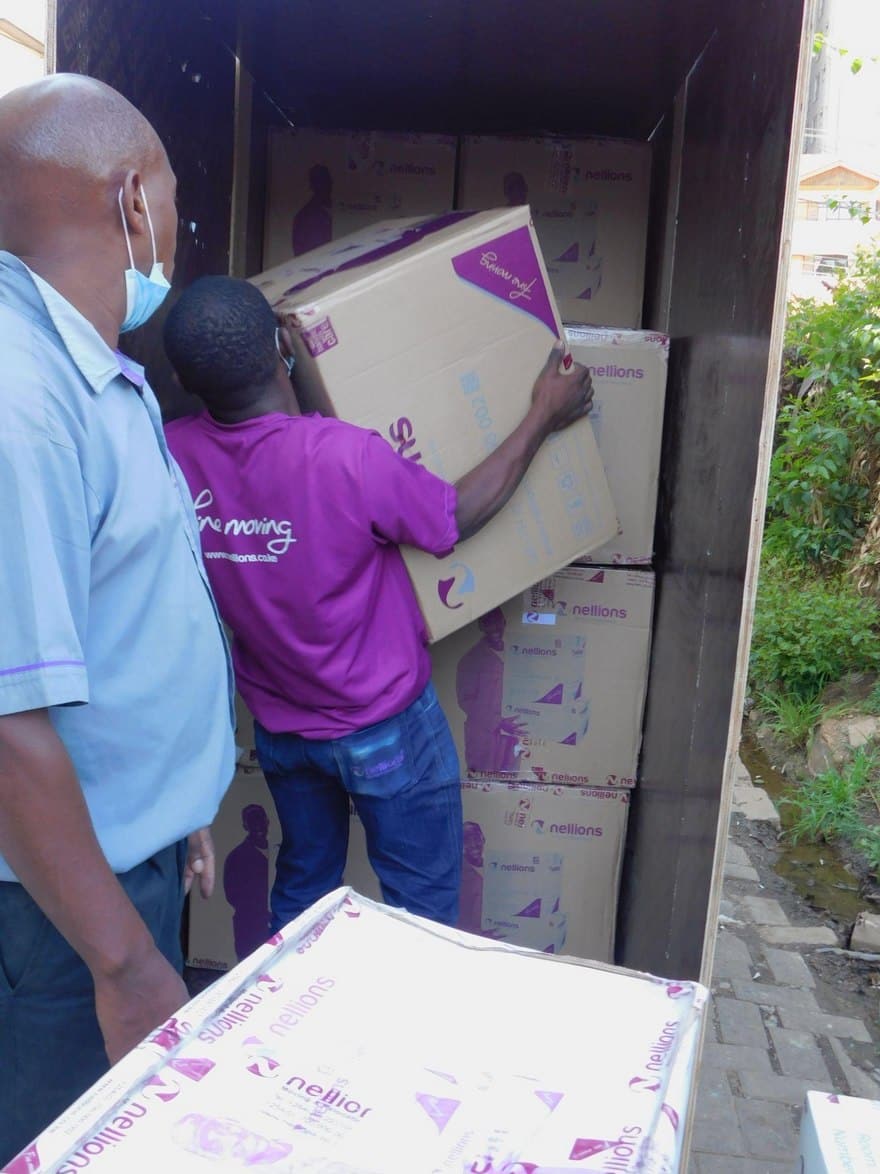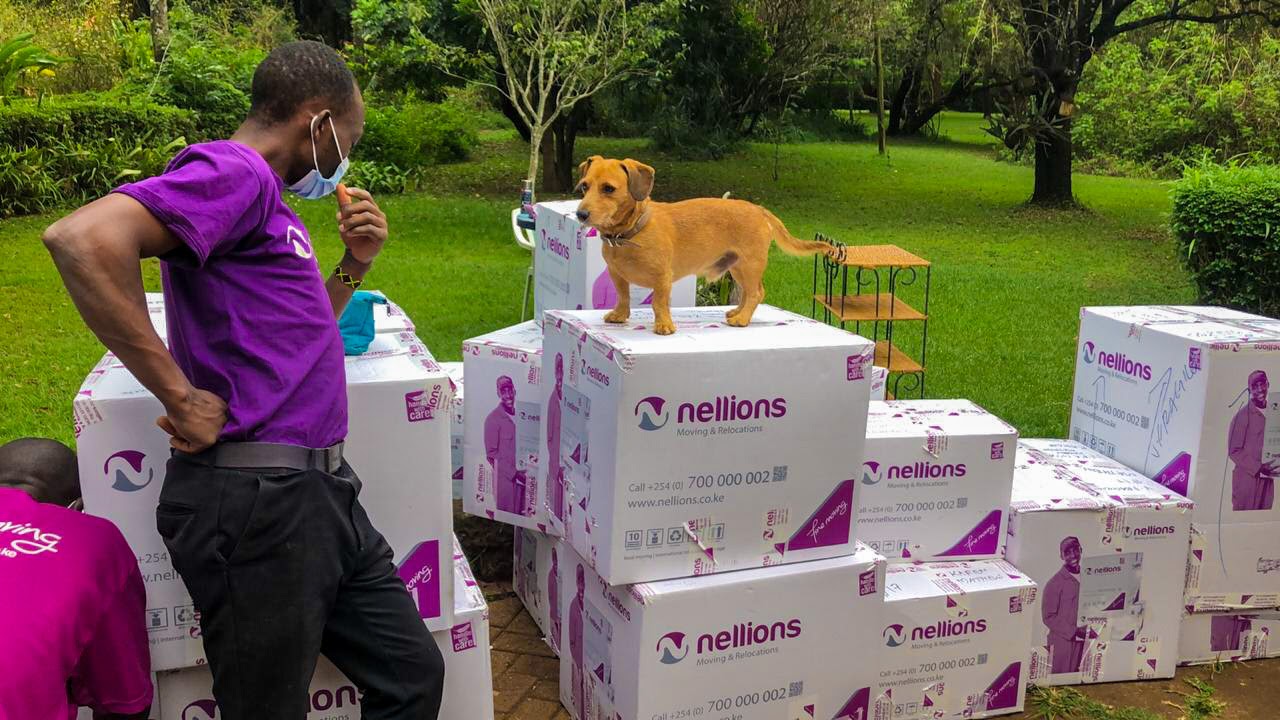Last updated on April 24th, 2024 at 02:50 pm
Relocating in Kenya presents a tapestry of challenges as diverse and dynamic as the country itself. From the bustling streets of Kenya’s urban centers to their tightly-packed outskirts and rural dirt roads, each move tells a different story, shaped by the unique contours of this vibrant land.
This article delves into the heart of Kenya’s moving industry, uncovering the ten most significant challenges faced by movers. Whether navigating through the rugged rural roads or managing the bustling urban traffic, these challenges paint a vivid picture of the complexities involved in moving within this beautiful nation.
Join us as we explore these hurdles and the ingenious ways movers overcome them, ensuring every transition is not just a journey, but a journey well made.
Understanding the elements of a successful move and the various challenges of moving in Kenya is key to efficient services and client satisfaction. Read on to discover the 10 biggest challenges and solutions for movers in Kenya.
- Table of Contents hide
Moving to Areas with Limited Infrastructure

Towing a moving truck stuck on a muddy road
Moving companies depend on reliable roads for the safe and efficient transport of goods and equipment to the new destination. They also rely on communication networks, such as telephone or internet to coordinate their operations and keep in touch with the client.
However, some areas in Kenya have poor roads that may be too narrow, unpaved, or damaged, making them impassable for large moving trucks or vehicles. This increases the cost and duration of moving and the risk of damage to the client’s belongings. Poor communication networks restrict the mover’s access to information, which may affect the quality, efficiency, and security of the relocation service.
Access to services and utilities such as water, electricity, and waste disposal is essential to support moving operations and personnel. Unreliable or inadequate supply may create logistics, hygiene, and maintenance challenges. Areas with limited infrastructure generally register a low demand for moving services because of low-income levels or lack of development, and operations to these destinations may not be as profitable or sustainable.
Navigating Kenya’s varied terrains requires more than just a map. At Nellions, route planning is a crucial part of the pre-move process, and we also utilize a fleet of versatile vehicles, specifically designed to conquer rough terrains and narrow paths, ensuring the safe and timely delivery of your belongings, no matter the destination.
Cost of Repairs and Maintenance
Moving trucks and vehicles are the backbone of relocation operations, and many movers may find it difficult to contend with the high costs of repairs and upkeep. This is important because it saves the client from a situation where time is a sensitive factor but you can’t get to the destination because your tire burst.

Newer trucks are more reliable and tend to break down less frequently.
Understanding the importance of reliability, Nellions invests in regular, comprehensive maintenance of our fleet. This proactive approach not only reduces the risk of breakdowns but also ensures our vehicles are always ready for the road, providing you with uninterrupted service.
Traffic and Weather Problems

Even after giving the client a date and time of delivery, you may encounter traffic congestion – a situation completely out of the mover’s control. Traffic jams cause major problems, including accidental damages or late deliveries, which most clients do not appreciate. Since sticking to the original timeframe is the rule of thumb, extensive planning and preparation are necessary. Movers in Kenya should always have alternative routes to combat traffic jams.
Besides being out of our control, weather problems are inherently unpredictable and can befall even the best movers.
Kenyan roads can be unpredictable, but our team at Nellions is always one step ahead. With real-time monitoring of traffic and weather conditions, we adapt our routes and schedules on the fly, ensuring your move isn’t hindered by unforeseen delays.
Road Safety and Security
Road safety and relocation security are among the top challenges for movers, especially in international shipping. The experience on the roads can also be challenging for experienced drivers, especially with road discipline being a major issue in Kenya. Besides the threat of poor road safety, and poor driving habits, movers have to contend with the risk of poor road conditions.
Safety is paramount at Nellions. Our drivers are trained for Kenya’s diverse road conditions, and we ensure that they maintain strict road discipline, all in an effort to safeguard your belongings against any threat, ensuring a secure transit from start to finish.
Local Unregulated and Unprofessional Movers
The business of moving may be taken lightly by some clients who resort to local unregulated ‘Ask for Transport’ movers who are notorious for delivering poor client experiences, giving professional movers in Kenya a bad reputation. Unregulated transporters do not guarantee the safety of one’s property nor do they provide insurance services.
Inexperienced movers are likely to encounter handling issues with loading and offloading and risk damaging property due to a lack of training or knowledge of standard moving procedures.
Seeking a moving quote from a professional moving company is more advisable for guaranteed safety and steady pricing despite any ‘unforeseen’ circumstances that may occur in the course of moving.
Access Issues and Double-Handling

Clients are responsible for communicating any potential issues with the new destination to prepare the movers in advance. However, some customers may forget to mention important impediments, such as narrow staircases or driveways, lack of elevator access for high-rise residential buildings, or low overhead at the main entrance.
Sometimes, parking spots may be scanty, necessitating long carries (where movers have to carry goods for a distance exceeding 30 metres) and thus significantly extending the move duration.
Some may also be unsure about which rooms to keep some items, causing movers to carry items between different rooms, hanging and unhanging pictures, and uninstalling furniture. This may lead to unforeseen labor overhead challenges for moving companies.
Such situations make it difficult for movers to efficiently carry out their duties.
Pro tip: It is essential to always inform your movers about any circumstances that may impede their ability to carry out the service smoothly so they can plan. On a moving day, arrange to get the closest possible parking space from your premises at both origin and destination.
Destination House Not Being Ready
Sometimes, the client’s destination house may not be entirely ready to move in and other contractors such as plumbers, builders, carpenters, and interior finishing professionals may be on-site. This may lead to accountability issues in case of theft, loss, or damage of property at the site.
The new house may also lack shelves, closets, or cupboards to place some items leading to an increased risk of damage and the need to purchase packing boxes to reduce the risk of damage.
We believe in the power of precision. Nellions carefully evaluates each project, aligning our resources to ensure we deliver top-notch service without overextending our capabilities. This balance is key to our consistent quality.
Last-Minute Rush
Rushing in the last minute may lead up to frustrations as most reputable companies may be booked to capacity and may take some time to accommodate a client’s needs. Overstretching resources during peak moving times, such as end months in Nairobi, can lead to poor client experiences as they resort to cheaper, less reliable alternatives.
Rushed moves lead to mistakes. That’s why Nellions prioritizes detailed planning and preparation for every job. Our structured approach eliminates hasty decisions, ensuring each move is executed with the utmost care and efficiency.
Cyber Security Issues
In today’s digital age, cybersecurity is a paramount concern, especially in the moving industry where sensitive personal and corporate data are frequently exchanged.
For residential relocations, protecting clients’ personal information is crucial. From addresses to inventory lists, every piece of data is a potential target for cybercriminals. Movers must employ robust cybersecurity measures to shield this information from unauthorized access and breaches.
The stakes are even higher in corporate relocations. Businesses relocating to or within Kenya often entrust movers with confidential data, including employee records, business strategies, and proprietary information. A breach in this context can lead to significant financial losses and damage to the company’s reputation. Therefore, it’s essential for moving companies to implement advanced data security protocols. This includes encrypted communication channels, secure data storage solutions, and regular cybersecurity training for employees.
Read more: Safeguarding Sensitive Information During Relocations: Ensuring Data Security During Office Moving
Moreover, with the increasing prevalence of remote work, corporate relocations now often involve the transfer of sensitive digital assets. Movers must ensure the secure handling and transportation of hardware that contains critical business data, such as servers and computers.
In summary, as the moving industry evolves, so does the importance of cybersecurity. Whether it’s a family moving to a new home or a corporation shifting its base, movers must prioritize data security to safeguard their clients’ trust and uphold the integrity of their services.
Micromanagement by Some Clients
Some clients give precise instructions and insist on witnessing every part of the relocation process to ensure they are followed to the letter. This occurs perhaps due to a lack of trust stemming from negative experiences with unprofessional movers in the past.
Micromanagement by clients jeopardizes standard procedures and ultimately the safety and security of movers and clients’ belongings on the site.
Moving can erupt into chaos especially with other contractors present on-site as accounting for theft and losses becomes more difficult. This is especially true with new, untrusting clients who wrongly perceive movers to be non-professionals.
Relocating a Divorcing Client
In the emotionally charged atmosphere of a divorce, movers often find themselves navigating a minefield of legal and personal tensions.
The division of assets becomes a contentious issue, with each party laying claim to shared property. Movers, in their role, must exercise extreme caution to avoid being perceived as taking sides, which could escalate tensions or even result in legal repercussions.
Ensuring clear, documented instructions from both parties or their legal representatives can mitigate risks, but the potential for conflict puts additional stress on the moving team, highlighting the need for movers to have protocols in place for handling such sensitive situations.
Residential Management Issues
Navigating the regulations and restrictions imposed by residential and commercial estates adds another layer of complexity to moving operations. These rules can vary significantly, with some estates enforcing strict access controls that can disrupt the moving schedule. For instance, when movers are barred entry due to unresolved financial issues between the estate management and the client, it not only delays the move but also increases costs due to extended labor hours.
Similarly, restricted moving hours within estates demand precise timing from moving companies, forcing them to adjust their schedules. These constraints require movers to have flexible planning and effective communication channels with property managers to ensure smooth operations.
Challenges with Downsizing
Downsizing represents not just a physical move but a significant emotional transition for many clients, particularly those who view it as a step down in their lifestyle.
The psychological impact of having to let go of possessions or move to a smaller space can lead to denial, resistance, and sometimes hostility towards the movers, who are merely the bearers of the practical realities of downsizing.
Movers need to approach these situations with empathy, offering solutions like storage or advice on decluttering, while also managing expectations to ease the client’s transition. This delicate balancing act requires movers to not only be logistical experts but also adept at handling emotional and psychological client needs.
Post-Move Challenges
After the physical move, movers often face post-move challenges that can tarnish their reputation and affect their bottom line.
Allegations of damage to belongings, whether genuine or dishonest, can lead to disputes that are difficult to resolve without clear evidence. This situation is exacerbated by clients who may be uncooperative during post-move assessments, making it challenging to document the state of items upon delivery.
These challenges underscore the importance of thorough documentation and clear communication throughout the moving process. Implementing detailed inventory checks, taking photographs before and after the move, and encouraging transparent dialogue can help mitigate these issues, ensuring that any claims are resolved fairly and efficiently.
Recovering pending payments can be particularly troublesome when clients resist, creating cash flow issues and straining business relationships.
Additionally, establishing a structured complaints procedure and exploring legal options for non-payment could be crucial in protecting the mover’s interests while maintaining a professional reputation. By proactively addressing these client behaviour issues, Kenyan movers can strive for smoother operations, minimise financial risks, and foster trust within the industry.
Moving in Kenya with Nellions
At Nellions, we transform moving challenges into seamless experiences. With our expertise and tailored solutions, your next move will be nothing short of exceptional. Contact us at +254700000002 or move@nellions.co.ke and let us make your relocation journey effortless.







